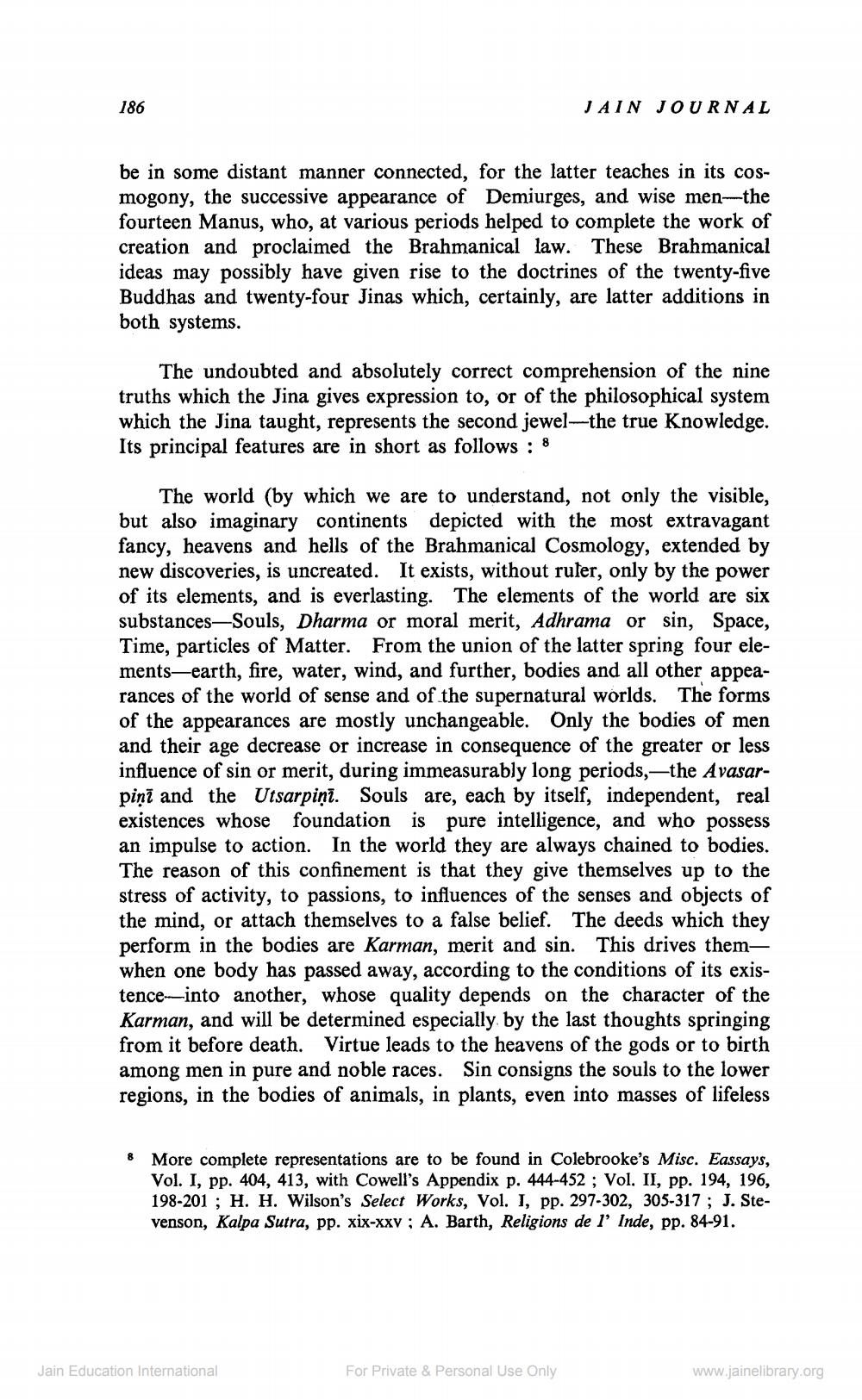________________
186
be in some distant manner connected, for the latter teaches in its cosmogony, the successive appearance of Demiurges, and wise men-the fourteen Manus, who, at various periods helped to complete the work of creation and proclaimed the Brahmanical law. These Brahmanical ideas may possibly have given rise to the doctrines of the twenty-five Buddhas and twenty-four Jinas which, certainly, are latter additions in both systems.
JAIN JOURNAL
The undoubted and absolutely correct comprehension of the nine truths which the Jina gives expression to, or of the philosophical system which the Jina taught, represents the second jewel-the true Knowledge. Its principal features are in short as follows : 8
The world (by which we are to understand, not only the visible, but also imaginary continents depicted with the most extravagant fancy, heavens and hells of the Brahmanical Cosmology, extended by new discoveries, is uncreated. It exists, without ruler, only by the power of its elements, and is everlasting. The elements of the world are six substances-Souls, Dharma or moral merit, Adhrama or sin, Space, Time, particles of Matter. From the union of the latter spring four elements-earth, fire, water, wind, and further, bodies and all other appearances of the world of sense and of the supernatural worlds. The forms of the appearances are mostly unchangeable. Only the bodies of men and their age decrease or increase in consequence of the greater or less influence of sin or merit, during immeasurably long periods, the Avasarpiņi and the Utsarpiņi. Souls are, each by itself, independent, real existences whose foundation is pure intelligence, and who possess an impulse to action. In the world they are always chained to bodies. The reason of this confinement is that they give themselves up to the stress of activity, to passions, to influences of the senses and objects of the mind, or attach themselves to a false belief. The deeds which they perform in the bodies are Karman, merit and sin. This drives themwhen one body has passed away, according to the conditions of its existence-into another, whose quality depends on the character of the Karman, and will be determined especially by the last thoughts springing from it before death. Virtue leads to the heavens of the gods or to birth among men in pure and noble races. Sin consigns the souls to the lower regions, in the bodies of animals, in plants, even into masses of lifeless
8 More complete representations are to be found in Colebrooke's Misc. Eassays, Vol. I, pp. 404, 413, with Cowell's Appendix p. 444-452; Vol. II, pp. 194, 196, 198-201; H. H. Wilson's Select Works, Vol. I, pp. 297-302, 305-317; J. Stevenson, Kalpa Sutra, pp. xix-xxv; A. Barth, Religions de l' Inde, pp. 84-91.
Jain Education International
For Private & Personal Use Only
www.jainelibrary.org




